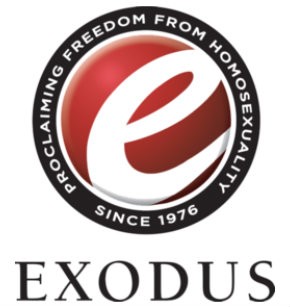After Exodus

“If my sinfulness,” Dietrich Bonhoeffer wrote in Life Together, “appears to me to be in any way smaller or less detestable in comparison with the sins of others, I am still not recognizing my sinfulness at all.” This idea, which is hardly original to the German martyr, only really made sense to me when I came across it in the context of a living, breathing religious community. That’s where saw that it is not a truism masking false humility but rather the stubborn fact of entering into evaluation of a sister or brother. Once we start ranking our own failings alongside those of another, we forget what sin is.
I thought of Bonhoeffer’s words today as I read the remarkable news that Exodus International, an evangelical ministry that promised “freedom from homosexuality,” has closed its doors—and the still more remarkable apology from its current leader, Alan Chambers.
Chambers’s apology deserves to be read in its entirety. There are many who will find it unsatisfying—as well as many who will encounter it as a betrayal, sitting as it does next to an active “give now” link. But I found it very moving. Chambers admits not just to being mistaken—which is hard enough in our world of entrenched ideological niches and finicky funders—but to being wrongly disposed in his own heart:
Please know that I am deeply sorry. I am sorry for the pain and hurt many of you have experienced. I am sorry that some of you spent years working through the shame and guilt you felt when your attractions didn’t change. I am sorry we promoted sexual orientation change efforts and reparative theories about sexual orientation that stigmatized parents. I am sorry that there were times I didn’t stand up to people publicly “on my side” who called you names like sodomite—or worse. I am sorry that I, knowing some of you so well, failed to share publicly that the gay and lesbian people I know were every bit as capable of being amazing parents as the straight people that I know. I am sorry that when I celebrated a person coming to Christ and surrendering their sexuality to Him that I callously celebrated the end of relationships that broke your heart. I am sorry that I have communicated that you and your families are less than me and mine.
Christian faith teaches us (however reluctant we may be to learn) that we are inclined to diminish our own sins and to amplify those of our neighbor—and that this very inclination is the result of suspect motives. Pulling the beam from one’s eye before pointing out the mote in another’s is not the task of an afternoon. Renouncing the very power of judgment and religious compulsion—implicit in (but hardly confined to) the mission of Exodus—is the work of a whole life of faith, and the good and faithful words shared by Chambers are an honest example of what that can look like.
As Exodus departs the scene, however, another apology seems in order. The organizaton’s existence, and that of publicy identified “ex-gays” within it, persuaded more than a few devout and good-hearted evangelicals that homosexuality could be cured. They were persuaded that it was the effect of disordered parenting or childhood trauma and could somehow be unwound from a person’s character. It will be interesting to see if this development prompts further public soul-searching on the part of heterosexual Christians who believed what Exodus told them and, as Chambers admits, most likely never heard the stories of “shame, sexual misconduct, and false hope” that came across his desk.
It may be hard for cultural liberals to imagine, but for a number of years Exodus has acted as a moderating force on the evangelical tendency toward sheer condemnation. One wonders how many anxious consciences were assuaged by its role.
But the speech Bonhoeffer commends to his readers is just as apt for Christians who have criticized Exodus as those who have supported it. “God did not make this person as I would have made him,” he says. One is tempted to say, not seeing as I see or loving as I think best. “He did not give him to me as a brother for me to dominate and control, but in order that I might find above him the Creator.”




